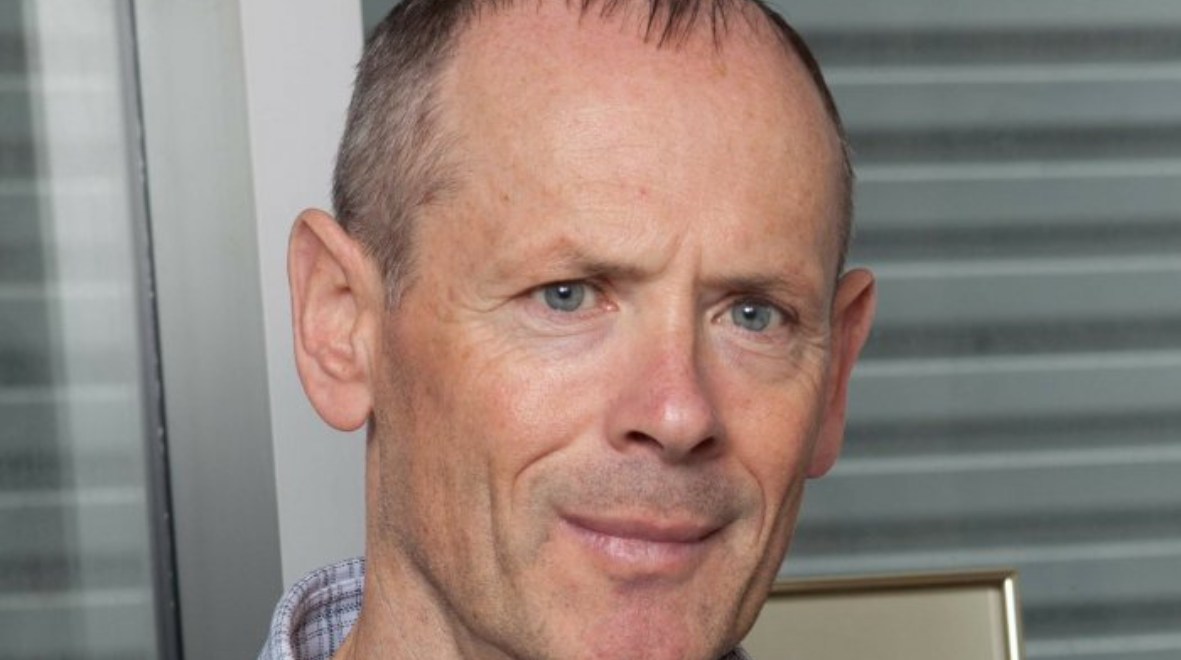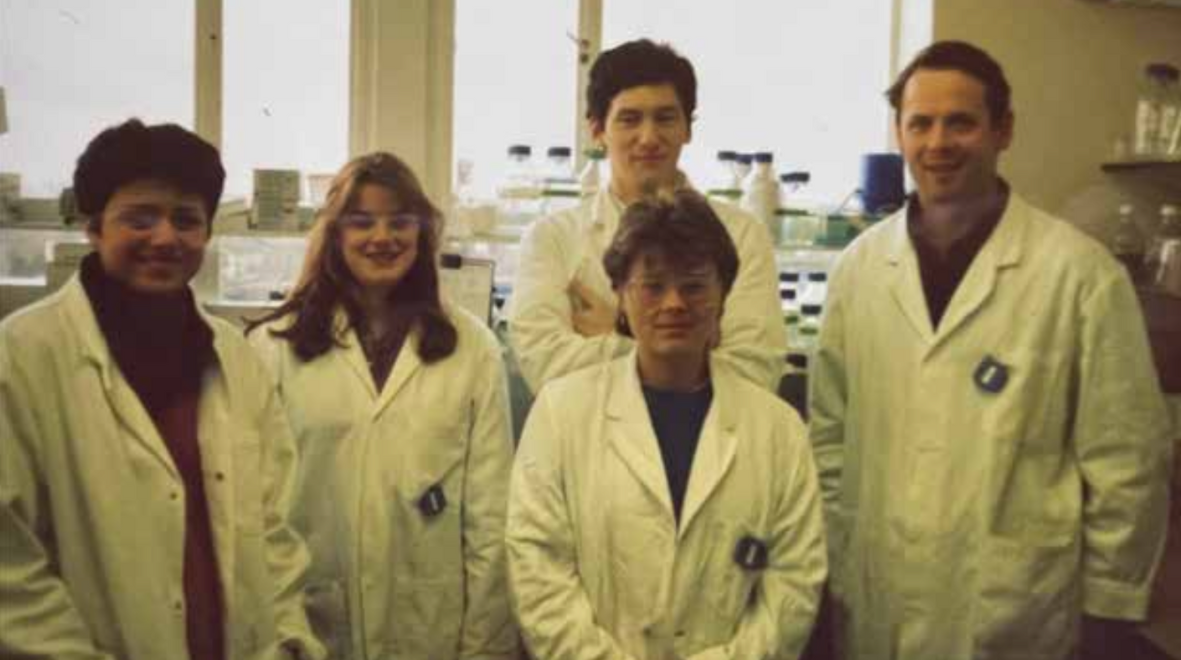
In this piece Professor Ramesh Wigneshweraraj pays tribute to Professor David Holden, who retired as Regius Professor of Infectious Disease this summer.
Foreword from Professor Deborah Ashby, Dean of the Faculty of Medicine
I am very grateful to Ramesh for penning this wonderful tribute to Professor David Holden, who retired in May having contributed so much to his field and our university.
His Regius Professorship in infectious disease was announced on 6 June 2016, when the honour was granted by Queen Elizabeth II as part of her 90th birthday celebrations. It was Imperial’s second, and at the time was one of only 26 Regius Professorships to have been granted since the reign of Queen Victoria. It recognised the world-leading infection research at Imperial that David has been the epitome of.
I congratulate David on all that he has achieved and wish him all the very best in his retirement.
As I compose this valedictory message to honour Regius Professor David Holden’s retirement, I am reminded of a quote by the eminent philosopher, Karl Popper, a favourite of David’s: “If you can’t say it simply and clearly, keep quiet, and keep working on it till you can.” This quote perfectly captures David’s scientific ethos, and the profound impact he has had on the microbiology community at Imperial and beyond.
David is a graduate of Durham University (BSc) and University College London (PhD). He held postdoctoral positions in Canada, the USA, and the National Institute for Medical Research (NIMR), London. In 1990 he was appointed as a Lecturer at the Royal Postgraduate Medical School (which was assimilated into Imperial in 1997), becoming a full Professor in 1995. In 2016, he was appointed as the first Regius Professor of Infectious Disease in the UK. It is at the NIMR, as a postdoctoral researcher, David was the first to show that colloidal gold is a sensitive and easy way to detect proteins on membranes. Today, this discovery is the basis of many commercially available colloidal gold protein stains. However, David is best known for inventing a methodology called ‘signature-tagged mutagenesis’ (STM; also called barcoding) for identification of mutant bacterial cells with altered growth in mixed populations. STM involves the construction of mutants labelled with unique identifying DNA sequence tags (barcodes), so that the fates of large numbers of different mutants can be determined simultaneously. The STM technique provided the conceptual basis for all subsequent mutant screens in microbiology. The STM approach and its derivatives (e.g., the broadly used TnSeq technique) have proved extremely popular in genetic research over the past several decades. They have been used in studies of virtually all bacterial pathogens that are amenable to genetic analysis, many fungi, parasites and in mammalian cells, where it is frequently combined with CRISPR-mediated mutagenesis. Collectively, these studies have identified many thousands of important and interesting virulence factors for follow up research. In sum, David’s original discovery revolutionised the field by proposing a simple but extremely powerful technique to identify thousands of genes, in many different species, relevant to virulence and pathogenesis. Accordingly, several patents on the STM technology have been granted. It was licensed to six pharmaceutical companies and was the foundation for the formation in 1997 of the Imperial spin-off Microscience, which today is a successful UK biotech company.
David first applied STM to Salmonella in a mouse model of typhoid fever. This led to his discovery of a set of genes, called the SPI-2 pathogenicity island, which is required for the systemic growth of this pathogen and encodes a secretion system that delivers virulence proteins into host cells. He elucidated the biochemical functions of several of these virulence proteins and described how they subvert both innate and adaptive immunity. Therefore, David’s work also provided important insights into the biology of eukaryotic cells. David’s discovery and analysis of the SPI-2 pathogenicity island stimulated many other research groups to study its function, which continues to advance our understanding of Salmonella pathogenesis. David’s work also provided important insights into how bacteria grow inside host cells, and he developed unique new methods to study the properties of individual bacterial cells within a community. This revealed that internalization of Salmonella by macrophages induces the formation of antibiotic-tolerant persister cells, which could seed relapsing infections and contribute to the development of antibiotic resistance.

David is a Fellow of the Royal Society, American Academy of Microbiology, EMBO and the Academy of Medical Sciences. However, David’s scientific successes and prowess are perhaps only second to the profound impact David continues to have – individually and collectively – on the microbiology community. In 2012, under his guidance and leadership, Imperial, in collaboration with the Medical Research Council (MRC), established the Centre for Molecular Bacteriology and Infection (CMBI). At that time, the CMBI was the only Centre in the world exclusively dedicated to the study of bacterial pathogenesis. The impact the CMBI has had on the microbiology community was perfectly encapsulated by the MRC recently, which said that “the Centre has made a positive contribution to the dramatic increase in capacity in this field […] such that capacity in molecular bacteriology in UK is no longer a national issue.”
David was instrumental not only for the scientific successes of the CMBI but, crucially, also for his commitment to develop and mentor an impressive number of young investigators who under his guidance and leadership have now flourished, making the CMBI, now called the Centre for Bacterial Resistance Biology (CBRB), one of the most desirable places in the world for bacteriology research and training and where David’s scientific legacy continues to exist.
To mark his retirement, David hosted a symposium to celebrate those people of whom he is profoundly proud and fond of, namely, the many alumni from his laboratory who are now themselves eminent scientists dotted across the globe, working on broad areas of bacterial infection biology. As David retired in May 2024, Imperial is privileged that he will continue to be connected to the University in the emeritus capacity. Karl Popper also said that: “The best thing that can happen to a human being is to find a problem, to fall in love with that problem, and to live trying to solve that problem, unless another problem even more lovable appears”. This quote perhaps nicely summarises how Imperial will mark David’s retirement and continue to honour his legacy by awarding a quadrennial PhD studentship in his name to train the next generation of scientists in bacterial infection biology.
Professor Ramesh Wigneshweraraj is Professor and Head of Section of Molecular Microbiology at Imperial’s Department of Infectious Disease and the Faculty of Medicine Campus Director for South Kensington.